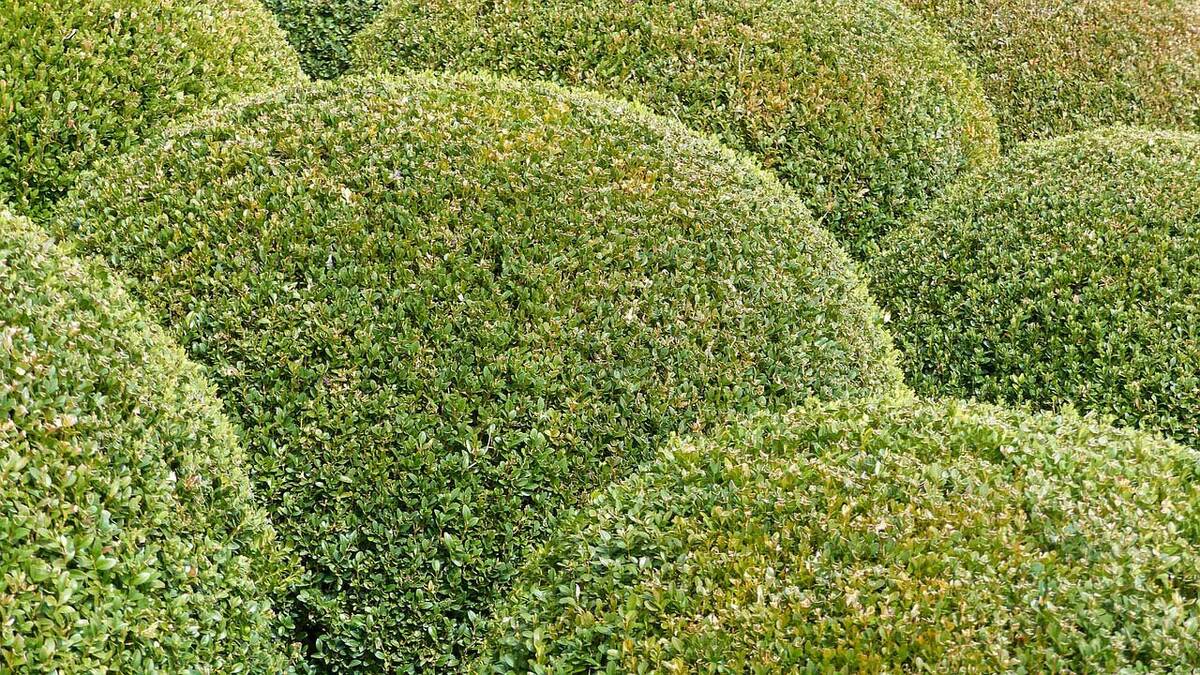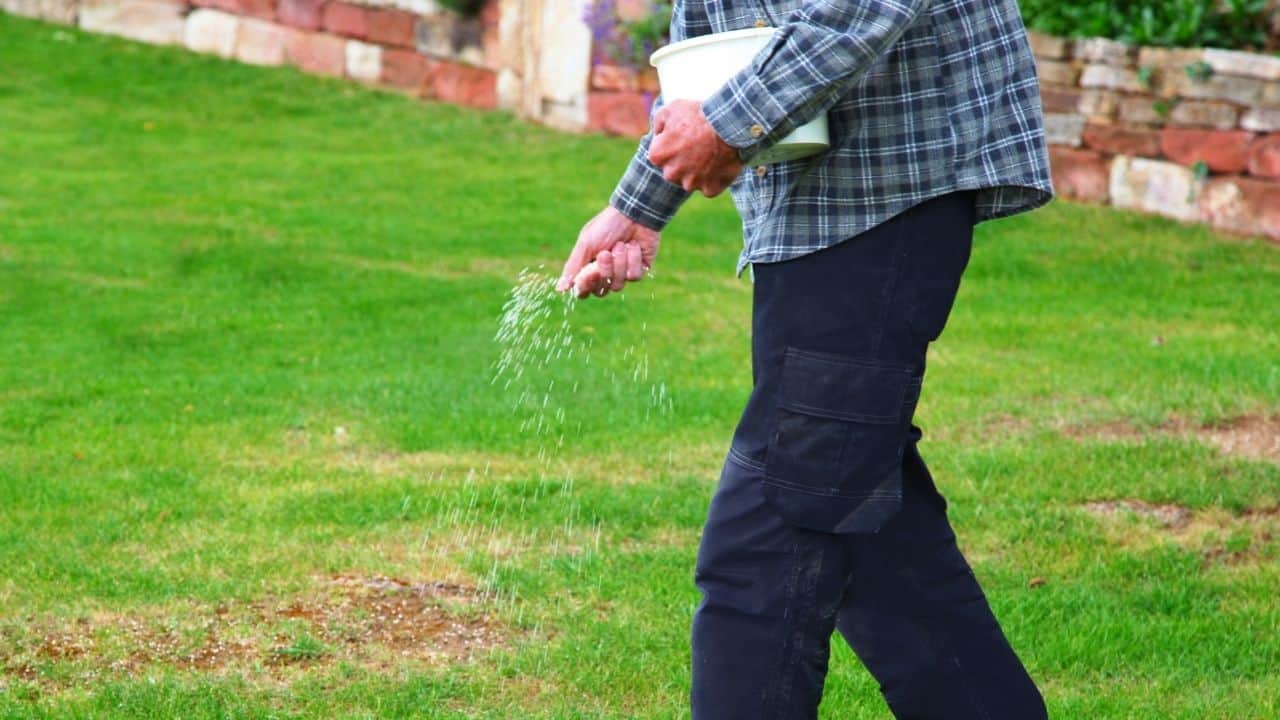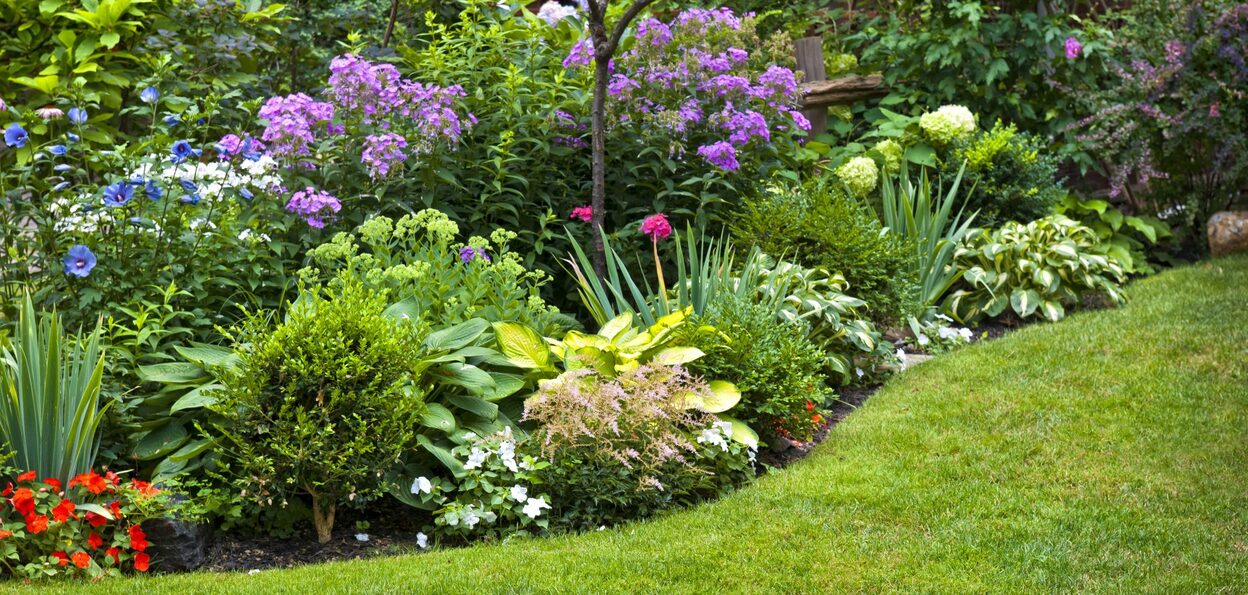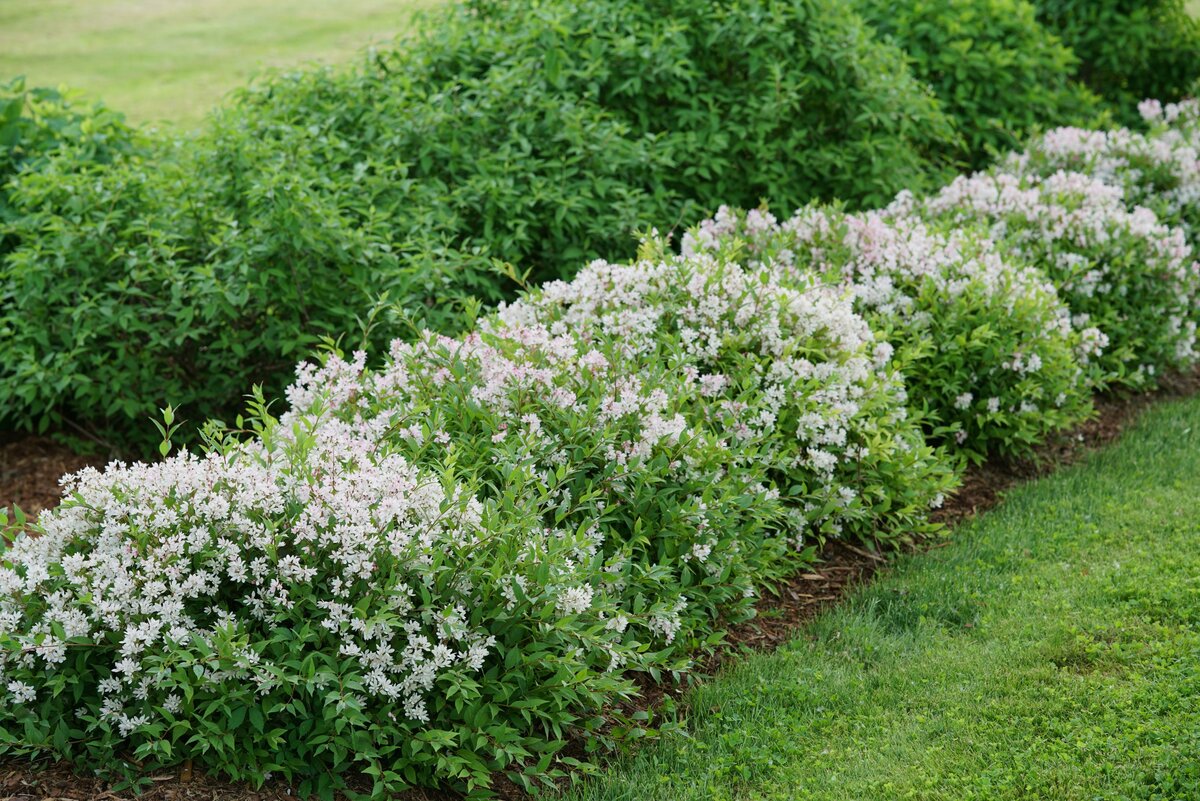Home>Gardening Techniques>Plant Care>What Type Of Fertilizer For Boxwood Shrubs


Plant Care
What Type Of Fertilizer For Boxwood Shrubs
Published: October 21, 2023
Looking to care for your boxwood shrubs? Find out what type of fertilizer is best for these plants and ensure they thrive with proper plant care.
(Many of the links in this article redirect to a specific reviewed product. Your purchase of these products through affiliate links helps to generate commission for Chicagolandgardening.com, at no extra cost. Learn more)
Table of Contents
Introduction
Welcome to the wonderful world of boxwood shrubs! These versatile and elegant plants have been cherished by gardeners for centuries, adding beauty and sophistication to landscapes and gardens. To ensure that your boxwood shrubs thrive and continue to enhance your green spaces, it is essential to provide them with the proper care and maintenance, including regular fertilization.
Boxwood shrubs, scientifically known as Buxus, are evergreen plants that are well-loved for their dense foliage, compact growth habit, and ability to be pruned and shaped into various forms. Their attractive, glossy leaves and vibrant green color make them a popular choice for hedging, topiaries, and as standalone specimens in both formal and informal gardens.
In this article, we will delve into the world of fertilizing boxwood shrubs and explore the different types of fertilizers available. Whether you are a seasoned gardener or a beginner, understanding the importance of proper fertilizer selection and application will help you unlock the true potential of your boxwood shrubs.
By providing the right nutrients, you can support the overall health and vigor of your boxwood shrubs, promoting lush growth, vibrant foliage, and improved resistance to pests and diseases. So, let’s roll up our sleeves and dive into the world of boxwood shrub care, starting with the role of fertilization in maintaining their vigor and beauty.
Understanding Boxwood Shrubs
Before we explore the intricacies of fertilizing boxwood shrubs, it is crucial to have a solid understanding of these beloved plants. Boxwood shrubs belong to the Buxaceae family and are native to Europe, Asia, and Africa. They are known for their compact and dense growth habit, making them an excellent choice for hedges, borders, and foundation plantings.
Boxwood shrubs are slow-growing, typically reaching a height of 1 to 6 feet, depending on the variety. Their small, leathery leaves are usually oval or oblong in shape, ranging in color from dark green to variegated combinations of green and cream.
These evergreen plants are versatile and adaptable, thriving in both full sun and partial shade. They prefer well-draining soil with a slightly acidic to neutral pH. Boxwood shrubs can withstand a wide range of temperatures, making them suitable for various climates.
Since boxwood shrubs have shallow root systems, they are sensitive to waterlogging and drought conditions. Regular watering, preferably in the morning, is crucial to keep the soil evenly moist. Mulching around the base of the shrubs helps conserve moisture and suppress weeds.
Pruning is an essential aspect of boxwood shrub care. It not only helps maintain their desired shape and size but also promotes air circulation, which aids in the prevention of diseases. Prune your boxwood shrubs in late winter or early spring for optimal results.
Now that we have a basic understanding of boxwood shrubs, let’s move on to the importance of fertilization and how it can contribute to the overall health and vitality of these stunning plants.
Why Fertilize Boxwood Shrubs?
Fertilizing your boxwood shrubs is vital for their overall health and growth. While these plants are generally low-maintenance, they still benefit from regular fertilization to ensure they receive the necessary nutrients to thrive.
Here are a few key reasons why fertilizing boxwood shrubs is essential:
- Supplying essential nutrients: Boxwood shrubs require a range of nutrients to support their growth and development. Fertilizers provide these essential nutrients, such as nitrogen, phosphorus, and potassium, which are necessary for healthy foliage, root development, and overall plant vigor.
- Enhancing plant color and foliage: Fertilizing boxwood shrubs can help intensify their green color and improve the density and quality of foliage. Well-fed boxwood shrubs often feature brighter, lusher leaves, adding visual appeal to your landscape.
- Boosting resistance to diseases and pests: Proper fertilization strengthens boxwood shrubs, making them more resilient to common diseases and pests. When provided with sufficient nutrients, these plants can better withstand stressors and recover more quickly from damage.
- Promoting healthy growth: Fertilizing boxwood shrubs encourages consistent and steady growth. It helps to fill in any bare spots, ensuring that your shrubs maintain their desired shape and form over time.
- Supporting root development: The root system of boxwood shrubs is crucial for their overall health and stability. Fertilizers help promote robust root growth, enabling the plants to efficiently absorb water and nutrients from the soil.
By providing regular fertilization, you can maximize the potential of your boxwood shrubs and enjoy their beauty for years to come. However, it is important to choose the right type of fertilizer and apply it correctly. In the next section, we will explore the different options available for fertilizing boxwood shrubs.
Types of Fertilizer for Boxwood Shrubs
When it comes to fertilizing your boxwood shrubs, there are several types of fertilizers to choose from. Each type has its own benefits and considerations, so it’s important to understand their differences to make an informed decision.
Here are the most common types of fertilizers for boxwood shrubs:
- Organic Fertilizers: Organic fertilizers are derived from natural sources, such as compost, manure, bone meal, and fish emulsion. These fertilizers release nutrients slowly and gradually, providing a steady supply of nourishment to the plants. They improve soil health, promote microbial activity, and are environmentally friendly. Organic fertilizers are a popular choice for those who prefer natural and sustainable gardening practices.
- Synthetic Fertilizers: Synthetic fertilizers are manufactured chemically and contain specific ratios of nutrients. They are typically available in granular or liquid form. Synthetic fertilizers provide quick and targeted nutrient delivery, allowing plants to absorb nutrients rapidly. They are easy to use and provide precise control over nutrient ratios. However, they may not improve soil health over time compared to organic fertilizers.
- Slow-Release Fertilizers: Slow-release fertilizers, as the name suggests, release nutrients gradually over an extended period. These fertilizers provide a consistent supply of nutrients to the plants, reducing the risk of overfertilization and nutrient leaching. Slow-release fertilizers are available in different formulations, including coated pellets, spikes, and granules. They are convenient and help extend the time between fertilization applications.
As you consider the type of fertilizer for your boxwood shrubs, it’s important to assess the specific needs of your plants and your gardening preferences. Organic fertilizers are excellent for long-term soil health and environmental sustainability, while synthetic fertilizers can provide quick results. Slow-release fertilizers offer convenience and steady nutrient release.
Regardless of the type of fertilizer you choose, it’s essential to carefully follow the package instructions to ensure proper application. Applying too much fertilizer or using the wrong type can harm your boxwood shrubs. In the next section, we will discuss how to apply fertilizer to your boxwood shrubs effectively.
Organic Fertilizers
Organic fertilizers offer a natural and sustainable approach to fertilizing your boxwood shrubs. These fertilizers are derived from organic materials, including compost, manure, bone meal, fish emulsion, and seaweed extracts. They provide a range of macro and micronutrients essential for plant growth and health.
Here are some key benefits of using organic fertilizers for your boxwood shrubs:
- Nutrient-rich soil: Organic fertilizers improve the overall health of the soil by enriching it with organic matter. This helps enhance soil structure and fertility, promoting beneficial microbial activity and nutrient availability for the plants.
- Sustainable gardening: Since organic fertilizers are derived from natural sources, they align with sustainable gardening practices. They are free from harmful chemicals, reduce water pollution, and have minimal environmental impact.
- Slow-release of nutrients: Organic fertilizers release nutrients gradually over time. This ensures a steady supply of nutrients to the boxwood shrubs, preventing excessive nutrient uptake and reducing the risk of nutrient leaching.
- Improved plant health and resilience: Organic fertilizers support overall plant health and boost the immune system of boxwood shrubs. The nutrients provided by organic fertilizers promote healthy growth, vibrant foliage, and increased resistance to diseases, pests, and environmental stressors.
- Long-lasting effects: Organic fertilizers have long-lasting effects on the soil. As they break down, they continue to release nutrients and improve soil fertility over time, reducing the need for frequent applications.
When using organic fertilizers for your boxwood shrubs, it’s important to read the product labels and follow the recommended application rates. This ensures that you provide the right amount of nutrients without overfertilizing your plants.
Incorporate organic fertilizers into the soil around the base of the shrubs, ensuring that the nutrients reach the root zone. Additionally, top-dressing with compost or other organic amendments can help provide a slow-release source of nutrients.
Overall, organic fertilizers are an excellent choice for those seeking a natural and sustainable approach to fertilizing their boxwood shrubs. The gradual release of nutrients, improved soil health, and long-lasting effects contribute to the overall vitality and beauty of these plants.
Synthetic Fertilizers
Synthetic fertilizers provide a quick and targeted approach to fertilizing your boxwood shrubs. These fertilizers are chemically formulated to provide specific ratios of essential nutrients, such as nitrogen (N), phosphorus (P), and potassium (K), which are represented by the N-P-K ratio displayed on the product packaging.
Here are some key benefits of using synthetic fertilizers for your boxwood shrubs:
- Precision in nutrient delivery: Synthetic fertilizers allow you to provide precise amounts of nutrients to your boxwood shrubs. The controlled release of these nutrients ensures that the plants receive the required elements for optimal growth and development.
- Quick results: Synthetic fertilizers are formulated to release nutrients rapidly, allowing for faster plant uptake. This can lead to visible improvements in growth, foliage color, and overall appearance of your boxwood shrubs in a relatively short span of time.
- Convenience and ease of use: Synthetic fertilizers come in a variety of forms, including granules, powders, and liquids. They are easy to apply, making the fertilization process quick and straightforward. This convenience is especially beneficial for large gardens or landscapes.
- Customizable nutrient ratios: Synthetic fertilizers can be customized to meet the specific nutrient requirements of your boxwood shrubs. By selecting a fertilizer with the appropriate N-P-K ratio, you can address your plants’ unique needs and achieve the desired growth and appearance.
- Precise control over plant nutrition: Synthetic fertilizers allow you to control the amount and timing of nutrient application. This level of precision enables you to adjust nutrient levels as needed, depending on factors such as plant growth stage, soil conditions, and environmental factors.
When using synthetic fertilizers, it’s important to follow the instructions provided by the manufacturer to avoid overfertilization, which can lead to nutrient imbalances and potential harm to your boxwood shrubs. It’s also recommended to water your plants thoroughly after applying synthetic fertilizers to aid in nutrient absorption.
While synthetic fertilizers offer quick results and precise nutrient delivery, it’s important to note that they may not contribute to long-term soil health. Unlike organic fertilizers, synthetic fertilizers do not improve soil structure or promote microbial activity. Therefore, supplementing synthetic fertilizers with organic amendments or compost can help maintain soil fertility and overall plant health.
Overall, synthetic fertilizers are a convenient and effective choice for fertilizing boxwood shrubs, providing quick results and precise control over nutrient delivery. However, it’s important to strike a balance and consider the long-term health of your plants and the soil in which they grow.
Slow-Release Fertilizers
Slow-release fertilizers are an excellent option for fertilizing your boxwood shrubs, offering convenience and a controlled release of nutrients over an extended period of time. These fertilizers are designed to slowly break down and release nutrients as the weather, soil moisture, and microbial activity allow.
Here are some key benefits of using slow-release fertilizers for your boxwood shrubs:
- Gradual nutrient release: Slow-release fertilizers provide a consistent supply of nutrients to your boxwood shrubs over an extended period. This sustained release ensures that the plants receive a steady flow of nutrients without the risk of overfertilization.
- Reduced frequency of application: Slow-release fertilizers require fewer applications compared to other types of fertilizers. Due to their extended release period, you can fertilize your boxwood shrubs less frequently, minimizing the need for constant maintenance.
- Prevention of nutrient leaching: Slow-release fertilizers are less prone to leaching, as the nutrients are released gradually. This reduces the risk of nutrient runoff into water sources and wastage of fertilizers, making them an environmentally friendly choice.
- Promotion of even growth: The gradual release of nutrients from slow-release fertilizers promotes balanced and even growth in your boxwood shrubs. This can result in healthier foliage, improved plant structure, and a more uniform appearance.
- Convenient and time-saving: Slow-release fertilizers eliminate the need for frequent fertilization, saving you time and effort. This is particularly beneficial for those with busy schedules or larger garden spaces.
Slow-release fertilizers are available in different forms, including coated pellets, granules, and spikes. They are typically applied once or twice a year, depending on the specific product and the nutrient requirements of your boxwood shrubs.
When using slow-release fertilizers, it’s important to follow the package instructions regarding application rates and timing. Apply the fertilizer evenly around the base of the shrubs, and water thoroughly to activate the nutrient release process.
While slow-release fertilizers provide several benefits, it’s important to note that they may not be as effective for plants with immediate nutrient needs or for gardeners seeking quick results. It’s also important to consider the specific nutrient requirements of your boxwood shrubs and adjust the type and amount of fertilizer accordingly.
Incorporating slow-release fertilizers into your boxwood shrub care routine can help ensure a consistent and balanced nutrient supply for sustained growth and overall health.
Applying Fertilizer to Boxwood Shrubs
Proper application of fertilizer is essential to ensure that your boxwood shrubs receive the right amount of nutrients for optimal growth and health. Here are some important guidelines for applying fertilizer to your boxwood shrubs:
- Timing: Apply fertilizer to your boxwood shrubs in the early spring or late fall. This is when the plants are in an active growth phase and can benefit the most from the nutrients.
- Read the instructions: Carefully read and follow the instructions provided on the fertilizer packaging. This will provide specific guidance on application rates, frequency, and any additional precautions.
- Measure the area: Determine the area to be fertilized around each boxwood shrub. This will guide you in calculating the appropriate amount of fertilizer to use.
- Distribute evenly: Apply the fertilizer evenly around the base of each boxwood shrub, ensuring that it covers the root zone. Avoid concentrating the fertilizer in one spot, as this can lead to uneven nutrient distribution and potential harm to the plants.
- Watering: After applying the fertilizer, water the area thoroughly. This will help activate the fertilizer and ensure that the nutrients can penetrate the soil and reach the roots of the boxwood shrubs.
- Mulching: Consider adding a layer of organic mulch, such as wood chips or compost, around the base of the shrubs. Mulching helps conserve moisture, suppress weeds, and provide additional nutrients as it breaks down over time.
- Keep a schedule: Establish a fertilization schedule for your boxwood shrubs, taking into account factors like climate, soil conditions, and the specific fertilizer used. Regular fertilization helps maintain consistent nutrient levels and supports healthy growth.
Remember, moderation is key when fertilizing boxwood shrubs. Avoid overfertilization, as this can lead to nutrient imbalances, burn the roots, or harm the plants. Always follow the recommended application rates and adjust them based on the specific requirements of your boxwood shrubs and the type of fertilizer used.
It’s also important to note that fertilization is just one aspect of boxwood shrub care. Proper watering, adequate sunlight, and regular pruning are also crucial for the overall health and beauty of your boxwood shrubs.
By following these guidelines and providing your boxwood shrubs with the right amount of fertilizer at the appropriate times, you can help them thrive and create a beautiful and vibrant landscape.
Frequency of Fertilization
The frequency of fertilization for your boxwood shrubs depends on several factors, including the type of fertilizer used, the age and size of the plants, soil conditions, and overall plant health. While there is no one-size-fits-all approach, here are some general guidelines to help you determine the frequency of fertilization for your boxwood shrubs:
- Young or newly planted boxwood shrubs: After planting young or newly established boxwood shrubs, it’s recommended to wait for about two to three months before applying any fertilizer. This allows the plants to acclimate to their new environment and establish their root systems. Once established, you can begin regular fertilization.
- Established boxwood shrubs: Established boxwood shrubs typically benefit from an annual or biennial fertilization schedule. Applying a balanced fertilizer in the early spring, before new growth begins, and in the late fall, helps sustain their nutrient needs throughout the year.
- Slow-release fertilizers: If using slow-release fertilizers, which release nutrients over an extended period, a single application per year may be sufficient. These fertilizers provide nutrients gradually and reduce the need for frequent fertilization.
- Organic fertilizers: Organic fertilizers, such as compost or manure, can be applied more frequently, typically once every two to three months during the growing season. These fertilizers have a slower release rate compared to synthetic fertilizers and require more frequent applications to maintain nutrient levels.
- Soil testing: Conducting a soil test can provide valuable information about the nutrient levels in your soil. This test can help determine if your boxwood shrubs have any specific nutrient deficiencies that require more frequent fertilization or adjustments in nutrient ratios.
It’s important to monitor the health and growth of your boxwood shrubs to determine if they require additional fertilization. Keep an eye out for signs of nutrient deficiencies, such as stunted growth, yellowing leaves, or poor foliage density. Adjust your fertilization frequency and nutrient application based on the specific needs of your plants.
Remember to always follow the instructions provided with the fertilizer, as different products may have varying recommendations for application frequency. Overfertilization can be detrimental to boxwood shrubs, so it’s best to err on the side of caution and avoid excessive nutrient application.
By maintaining a regular fertilization schedule and adjusting it based on the specific needs of your boxwood shrubs, you can provide them with the necessary nutrients for healthy and vibrant growth.
Signs of Overfertilization
While fertilizing your boxwood shrubs is essential for their health and growth, it’s important to be cautious and avoid overfertilization. Overfertilization can lead to nutrient imbalances, root damage, and other detrimental effects on your plants. Here are some signs to watch out for that may indicate overfertilization:
- Leaf browning or scorching: Excessive amounts of fertilizer can burn the roots of the boxwood shrubs, leading to leaf browning or scorching. The edges or tips of the leaves may turn brown and dry out, indicating nutrient burn.
- Stunted growth: Overfertilized boxwood shrubs may exhibit stunted or distorted growth. The plants may appear smaller, with limited new growth and smaller leaves compared to properly fertilized plants.
- Decline in foliage quality: Instead of lush and healthy foliage, overfertilized boxwood shrubs may have foliage that appears pale, yellowish, or discolored. The leaves may lose their vibrant green color and exhibit deficiencies in chlorophyll production.
- Increased susceptibility to pests and diseases: Overfertilized boxwood shrubs can become more vulnerable to attacks from pests and diseases. Excessive nutrient levels can disrupt the natural balance of the plants, weakening their defenses and making them more susceptible to infestations or infections.
- Excessive shoot growth: Overfertilized boxwood shrubs may display excessive shoot growth, resulting in leggy or elongated branches. This can occur when the plants receive an abundance of nitrogen, promoting vegetative growth at the expense of the overall plant structure.
- Environmental impact: Overfertilization can have environmental consequences, such as nutrient runoff and pollution of water sources. The excess nutrients can leach into the soil, reaching groundwater or nearby bodies of water, leading to algae blooms and negatively impacting aquatic ecosystems.
If you notice any signs of overfertilization in your boxwood shrubs, it’s important to take immediate action to correct the issue. Switch to using plain water for irrigation to flush out excess nutrients from the soil. Adjust your fertilization practices by reducing the amount or frequency of fertilizer applications. It’s also advisable to consult with a gardening professional or horticulturist for further guidance and recommendations specific to your situation.
Remember, proper fertilization requires a balance and understanding of the nutrient needs of your boxwood shrubs. By being vigilant and avoiding overfertilization, you can maintain the health and beauty of your plants without causing harm.
Conclusion
Proper fertilization is a key component of caring for your boxwood shrubs and ensuring their optimal health and beauty. By understanding the specific needs of your plants and selecting the appropriate type of fertilizer, you can provide them with the essential nutrients they require for vibrant growth.
Whether you choose organic fertilizers for their sustainable approach, synthetic fertilizers for quick and targeted results, or slow-release fertilizers for convenience and steady nutrient release, each type has its advantages and considerations. Remember to read and follow the instructions provided by the manufacturer to avoid overfertilization and potential harm to your boxwood shrubs.
Applying fertilizer to your boxwood shrubs should be done strategically and with care. Timing and frequency are important factors to consider, taking into account the age and size of the plants, soil conditions, and the specific fertilizer used. Regular monitoring of your boxwood shrubs’ health and adjusting the fertilization routine accordingly will help ensure that they receive the proper nourishment they need to flourish.
While fertilization plays a crucial role, it is just one aspect of boxwood shrub care. Adequate watering, sufficient sunlight, regular pruning, and attention to overall soil health are equally important for maintaining the long-term vitality of your plants.
By incorporating the guidelines and tips outlined in this article, you can confidently fertilize your boxwood shrubs and watch them thrive. Whether you are a seasoned gardener or new to the world of boxwood shrub care, implementing proper fertilization practices will allow you to enjoy the beauty, density, and longevity of these remarkable plants in your landscape or garden.






